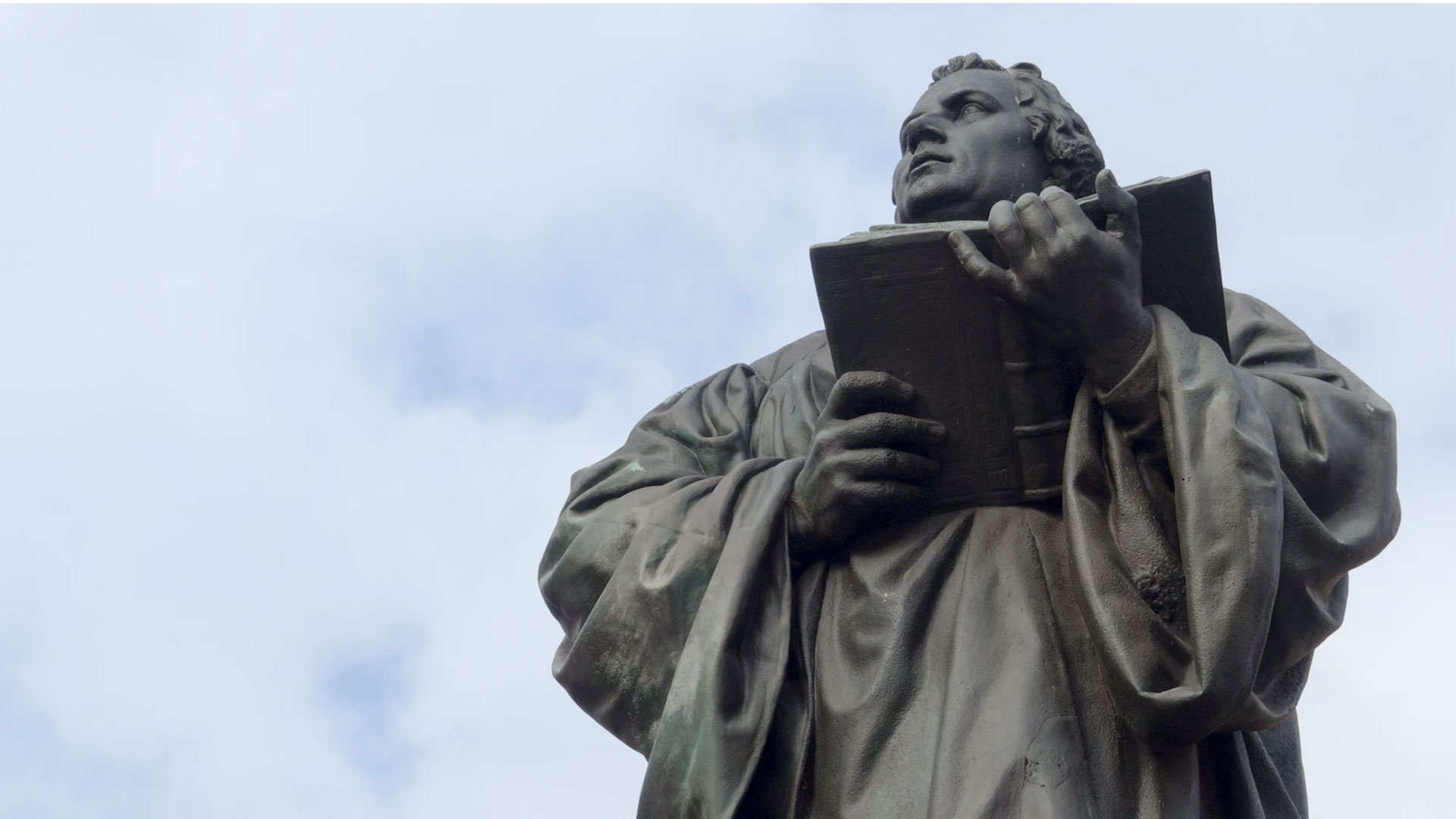Author: Michael Pfundner, 12 January 2024
His family called him Little Mike. The world knew him as Dr Martin Luther King Jr. Four centuries and five thousand miles separate the American civil rights activist from the German spiritual radical Martin Luther.
Born into the King family in Atlanta, Georgia, on 15 January 1929, Little Mike would later be named after the man who had shaken the foundations of 16th century Europe. After a trip to Germany, Little Mike’s father changed his own name, and his son’s, from Michael to Martin Luther.
Do they have more in common than the name?
Like the German reformer, Martin Luther King stood up to the establishment. Taking a leaf out of his namesake’s book, King attached his demands for fair housing to the door of Chicago’s city hall. Back in 1517, Martin Luther had nailed his 95 theses to the door of Wittenberg Castle Church, openly lambasting the spiritual practices of his day.
Luther soon faced the wrath of the Church, the most powerful institution in the land. Similarly, King was locked up for his civil rights activism. From prison he wrote, ‘Here I stand; I cannot do otherwise, so help me God’ – the very words Martin Luther had spoken to Emperor Charles V, when he was tried for heresy.

Both men were inspired by the Bible. Martin Luther attacked the business model of the Church: people were told to part with their hard-earned cash as an insurance policy against hell. But the Bible had convinced him that heaven couldn’t be earned; it was God’s gift.
While Luther quoted the Apostle Paul, Martin Luther King’s struggle against white supremacy drew from the Exodus, the Israelites’ rescue from their Egyptian oppressors.
Meanwhile, King’s belief in peaceful resistance reflected Jesus’ refusal to resort to violence. Luther also favoured spiritual renewal over bloody revolution.
The religious reformer and the political activist were both masters of the word. Luther did for the German language what Tyndale and Shakespeare did for English. As for Martin Luther King, it is hard to think of a more stirring speech in modern times than ‘I have a dream’.
So much for the parallels. One striking difference between the two men cannot be ignored.
Martin Luther King challenged the political authorities of his day, whereas Martin Luther believed in surrendering to secular rule. When starving farmers rebelled against greedy landowners, Luther sided with the powerful. He saw the kingdom of heaven and earthly kingdoms as two different entities. You couldn’t apply God’s grace in the secular realm; you had to obey God’s representatives on earth, even the godless ones.
Martin Luther King, on the other hand, believed in applying the essence of the Bible’s message to the way his country was being run. ‘My conscience,’ King maintained, ‘is captive to the word of God that tells me all people are created equal and this equal creation needs to be implemented in practice and not just in theory.’
Ultimately, both men ended up changing their world. Martin Luther triggered the decline of church power and altered the religious landscape. Martin Luther King energised a movement towards greater racial equality. Who knows what the legacy of both men might have been, had the Bible not shaped their views and kindled their visions of spiritual and social deliverance.
Share this:

Can you welcome asylum seekers into church while still supporting hard-line immigration policies?

How did God welcome the foreigner?
